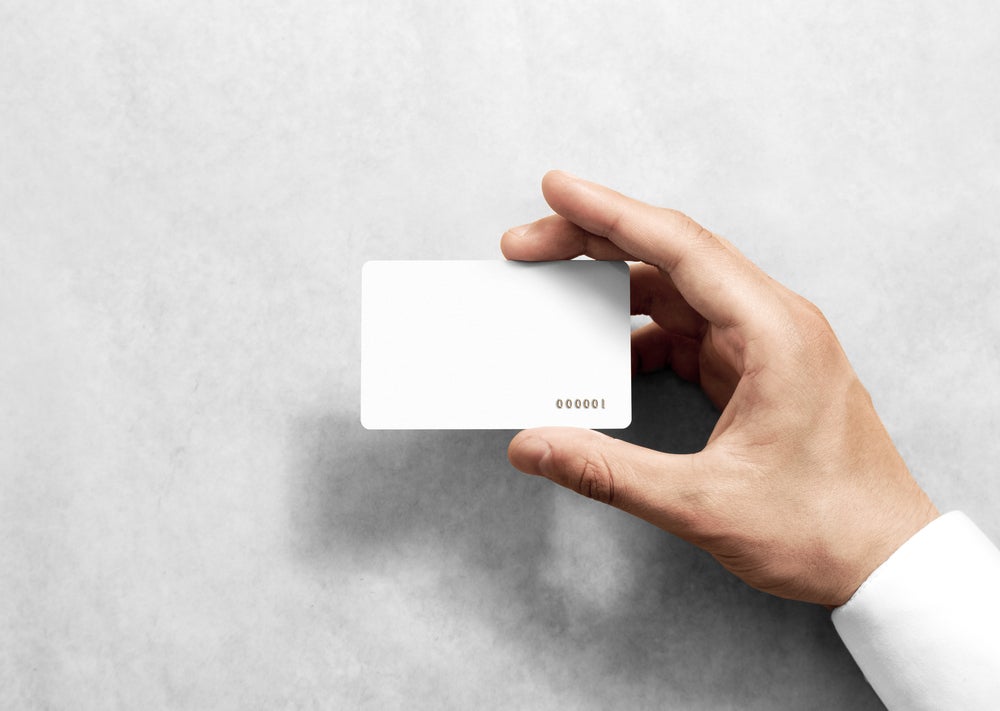Israel’s card market is one of the most innovative in the world,
thanks to highly advanced technological development in the fields
of analytics and smart cards. Joel Bainerman reports on
the companies at the forefront of the development.
Israeli citizens safe against terrorist attacks and invasion by
surrounding countries, it is also a benefit to major international
corporations seeking leading-edge technologies, particularly in the
card industry.
elite units of the IDF leave with extensive expertise in internet
technology, data security and software development – three key
features in designing new technologies for the international card
industry. Israel’s security industry has pioneered entirely new
areas of the international data security industry, with firms such
as CheckPoint Software. Now, Israeli innovators are doing the same
for the global card industry.
year the US financial services company PayPal paid $170 million in
cash for the tiny Israeli start-up whose specialised technology was
designed to differentiate between real and fraudulent transactions.
That technology will be folded into PayPal’s anti-fraud
systems.
the SpotLight transaction verification system, which relies on
behavioural analytics and real-time fraud intelligence tools. It
can confirm that the customer trying to use a credit card number on
a computer is the owner of the credit card. The system cuts down on
fraudulent transactions, but also lets merchants accept
transactions that seem to be suspicious. Any activity on the credit
card, such as it being used in two distant places within a short
period of time, is detected.
mConfirm fights fraud
Another innovative start-up that will likely attract the attention
of a blue chip corporation in the international card industry is
mConfirm, whose technology is used to thwart credit and debit card
fraud, and potentially stops ID thieves in the act. This in turn
helps banks better protect customers, stem losses due to fraud, and
attract new depositors with free identity protection
services.
phones to pinpoint the location of a consumer and their payment
card. If the locations don’t match, the transaction is flagged and
risk systems alerted, so that action can be taken immediately.
Already proven highly successful at Visa CAL, a major Israeli
credit card issuer and processor, mConfirm claims its technology
significantly improves fraud detection and reduces false alert
rates without slowing down the transaction process.
provide the technology to depositors and credit card customers as a
value-added free service, bundled with checking and savings
accounts, credit cards, and so on. While the location-based
behaviour module does not rely on cellular location data, and
therefore can automatically be provided to bank customers, the
cellular location module is an opt-in service. The mConfirm system
soon pays for itself through reduced losses, and through increased
revenue by attracting security-conscious depositors and
borrowers.
banks exclusively by Security Identify Systems. It is being offered
to customers of the banks free of charge, and does not require
GPS-enabled phones or changes to existing card processing systems.
The system uses two factors – location-based behaviour analysis and
mobile phone location analysis – to develop a fraud risk score,
which is the chance of a transaction being fraudulent. The system
works with some of the most popular commercially available mobile
phones and domestic wireless networks, including Apple iPhone, RIM
Blackberry, LG, AT&T, Nokia, Motorola, Samsung, and even
prepaid services.
Beepcard goes wireless
Beepcard is a leading Israeli developer and provider of
miniaturised wireless authentication and verification systems for a
variety of security and mass-market applications. It offers the
world’s first reader-free smart card, and is first-to-market with
self-powered digital devices of any sort that adhere to the
exacting international standards for bank cards.
How well do you really know your competitors?
Access the most comprehensive Company Profiles on the market, powered by GlobalData. Save hours of research. Gain competitive edge.

Thank you!
Your download email will arrive shortly
Not ready to buy yet? Download a free sample
We are confident about the unique quality of our Company Profiles. However, we want you to make the most beneficial decision for your business, so we offer a free sample that you can download by submitting the below form
By GlobalDatathat enables a card or credit card to perform wireless
communication with a PC, phone and cell phone, without requiring a
card reader. ComDot technology bridges online and offline commerce
and strengthens the relationship between users and their network or
internet service. It also provides the infrastructure to enforce
trust and security in web-based environments, locally installed
client applications and electronic consumer devices. ComDot cards
use an acoustic encrypted signal to securely communicate with PCs,
mobile or fixed line phones, and other audio-capable devices.
easy and convenient for users to grasp. Users simply hold the card
in front of their PC, phone or other networked microphone and
squeeze the ComDot – a flat button on the card. One squeeze of the
ComDot button located on the card activates the authentication
process.
authentication message, using sound waves as its communication
medium. Pressing the ComDot button located on the card will
transmit a unique 3-DES encrypted authentication message, to be
received by any sound-equipped device, such as a PC, land or mobile
phone, PDA and so on. Unlike conventional smart cards, the ComDot
card does not require installation of dedicated hardware, such as a
smart-card reader. ComDot technology uses the PC/phone microphone
as its reader. ComDot cards include an internal battery, providing
autonomous operation and omitting the need for external
power.
many industry sectors, including banking, network security,
healthcare, telecommunications, and online services, through their
unique user authentication and loyalty functionality. End users
enjoy the cards for their familiarity, simplicity and security in
e-shopping, phone-based purchasing, and internet services log-in.
They can even use the card for phone card calling and cash
withdrawal from ATMs.
phones, mobile phones using all technologies, sound equipped PDAs,
physical security systems and so on. Implementing the ComDot card
in conjunction with a PIN brings the familiar two-factor
authentication scheme of an ATM machine to every PC and
telephone.
Praxell, Payoneer and prepaid
Praxell offers one of the industry’s most advanced programme
management platforms, allowing processors, programme managers,
co-branders and independent sales organisations (ISOs) to offer
customised prepaid debit card programmes. Praxell customers use the
platform to manage and report on programmes, to provide
best-in-industry cardholder, distributor/merchant and call centre
access, to help ensure compliance with the industry’s fast changing
regulations and to monitor for potential fraud.
nationwide through retail outlets (convenience stores, cheque
cashers, and self-service kiosks), and is also offered by online
merchants. The card can be inventoried and ‘instant issued’ to
consumers in-store.
with co-branded card products incorporating the client’s brand.
Using Praxell’s technology-based enablement services, co-branders
and programme managers can launch programmes with all of the
account-by-account and merchant-by-merchant controls of the Program
Management Platform. Praxell can also work with existing
processors, banks, or fulfilment houses.
retailers, ISOs, processors and banks with fully PCI-compliant card
issuance, loading, reporting and risk management. All of the
Program Management Platform’s business logic is accessible through
XML application programming interfaces for flexible and quick
integration to front- and back-office systems.
MasterCard cards in Israel. Anyone 13 years or older can get a
card, by filling out a form online. In this way, Payoneer offers
individuals and organisations a way of transferring funds directly
to end users’ prepaid debit MasterCards. Payoneer was founded in
2005 and is headquartered in New York, with its research and
development operations based in Israel. Its investors include
Payoneer’s CEO Yuval Tal, private investors and venture capital
fund Greylock Partners. Payoneer offers its business customers a
co-branded MasterCard. Among its 70 clients are oDesk, MetaCafe,
Amie Street and iStockphoto.
pay their people (employees, subcontractors and so on) worldwide
using prepaid MasterCard cards that are managed online. The company
works primarily with internet-based service companies that retain
the services of contractors, freelancers, affiliates or employees
worldwide. By transferring funds directly to the end users’ cards,
both payer and payee avoid many of the fees and delays that are
often associated with international payments. Cardholders do not
need to have bank accounts in order to use the card. The company is
partnered with financial institutions including the Royal Bank of
Scotland (RBS Lynk), the First Bank of Delaware and Prepaid Loading
Systems.
mail), it needs to be activated for security reasons. From this
point on it can be used just like any other MasterCard card and can
be used anywhere MasterCard is accepted. Cardholders and others who
have the cardholder’s email address or the card number can load
anywhere from $20 to $1,000 per day on to the Payoneer card.
card. Activation requires a one-time fee of $9.95, monthly
maintenance costs $3 per month and loading money onto the card will
usually set a cardholder back 3.5 percent of the loaded amount.
Once a card has a zero balance for 60 days it is automatically
deactivated.
Cell-Apps and mobile payments
The latest versatile application for mobile phone payments in
Israel comes from another start-up, Cell-Apps, whose Cell-Cash
patent-pending product turns mobile phones into an electronic
wallet. “It is the world’s only secure mobile wallet,” Micha
Himmelman, president and CEO of Cell-Apps, says. “All you have to
do is put in the amount, the vendor’s account, your PIN code, and
press send.”
internet commerce, within a prepaid system, is the way of the
future. “With the sale of multimedia phones expected to increase to
$76 billion in 2008, outnumbering the sale of TVs, using phones to
transfer money is an idea whose time has come,” he adds.
have credit cards, or are reluctant to use them (especially for
small amounts), and the unbanked in the former Commonwealth of
Independent States (CIS), which includes eleven former Soviet
republics.
niche: 75 percent of the population does not have a bank account.
The concept of prepaid is already part of the culture,” says
Himmelman.
accounts who are vulnerable to theft. The Cell-Cash technology
would allow them to transfer money to their native countries with
minimal expense.
Parents can limit their children’s spending with Cell-Cash, and not
have the worry of excessive purchasing or a lost card.
from one of the major credit card companies. He objects to the high
fee for each transaction,” comments Himmelman. “Plus, the card can
only be loaded three times and cannot be fully used.” Himmelman
says that no transaction fees, and minimal cost to the consumer,
add to Cell-Cash’s appeal.
he says. “The novel two-way transfer of cash works point-to-point,
person-to-person, wallet-to-wallet. The electronic wallet can be
loaded with cash from a bank, a post office, or a credit card. You
can check the balance on your phone.”
system to pay and be paid. It can be used in a closed network
where the vendor and large number of users work in a prepaid
environment. For example, a company can give an employee an
electronic wallet with a monthly cash credit for use in a
particular restaurant.
Himmelman sees many applications in e-commerce and e-cash.
Cell-Cash to access higher quality websites, and make small
purchases. Social networking, dating sites and gaming sites usually
require small amounts of cash. If you win, your wallet could be
credited,” he says.
technology does not save any secret, private data or personal
identification in the phone. If a phone is lost, there is no access
to personal data. The system comes with a patented multi-purpose
key (a dongle) that fits in a pocket or purse. It sounds an alarm
if the phone is lost or stolen, and renders it inoperable. The key
is also used for identification and giving the user access to sums
of money over $100, according to anti-terror and money laundering
laws.







